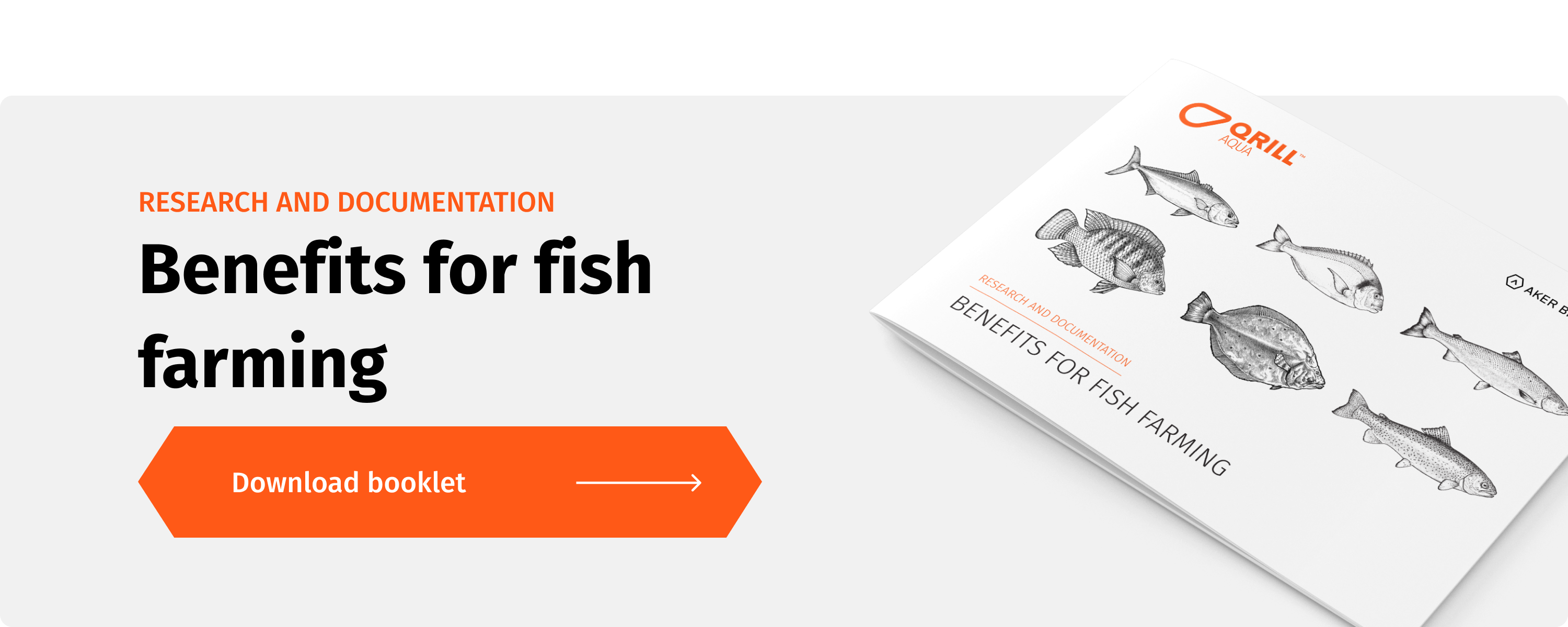It’s simple. For any fishery to continue fishing, it is important not to overfish the very source they depend on. With the increasing pressure on aquaculture to feed the growing population, the need for sustainably sourced marine ingredients has never been greater. Feed producers and fish farmers play a unique role in setting the standard for sustainability in fish feed, by choosing feeds that promote both fish health and the future of fisheries.
The future's looking bright for the Norwegian fish farming industry. Ever since its infancy in the 1970s, the industry has advanced rapidly, making Norway the world’s biggest producer of farmed Atlantic salmon.
In 2016 the export income from salmon and trout reached a mind-blowing 65,3 billion NOK. It is estimated that the production in Norway amounts to around 37 million fish meals per day. Farmed fish have increasingly become an important part of the diet for people all over the world, providing consumers with a nutritious, protein-rich fish abundant in omega-3 fatty acids and essential vitamins.
Contrary to popular believes we cannot fully replace marine oils high in EPA and DHA with plant-based ingredients, as it is the EPA and DHA that are linked to the health benefits that prevent common lifestyle diseases in man.
Furthermore, as naturally available fish stocks are being exploited ever closer to and sometimes beyond their maximum sustainable production limit, fish farming holds tremendous promise in responding to surging demand for food as our global community is growing in size.
In Norway there is ambition to grow aquaculture to a five or six fold increase by 2050. This growth clearly needs to be kept healthy and sustainable for the fish, the human consumer and the capacity of our oceans in terms of marine feed ingredients.
How can fish farmers meet this growth in aquaculture and still take care of the health of the fish?
"You will almost never find one single solution to a biological problem. Krill, with its many health benefits, could become an indispensable tool in the battle against several health challenges.” Håvard Bjørgen,
Pre-PhD candidate and veterinary student at the Norwegian Veterinary College
Fish health – challenges and improvements
Despite its overall success, fish farming has experienced some serious challenges, especially in regard to health issues. Fish health and welfare continue to be key areas of concern receiving growing attention. Considerable efforts have been invested in increasing our knowledge of diseases and other production related challenges.
The individual fish farmer, as well as the industry, are investing more than ever in new methods and measures to keep the fish healthy. High quality fish feed is of great importance as it has potential to reduce mortality rates and improve the financial performance of aquaculture.
On the other end of the scale, “Studies have shown that using feed that deviates substantially from the fish’s natural marine diet may cause health problems and lower the quality of the final product,” says Håvard Bjørgen, Pre-PhD candidate and veterinary student at the Norwegian Veterinary College who joined Aker BioMarine for an internship in 2016. However, there is an overall shortage of marine fish food compounds as their availability relies on traditional fisheries which have plateaued in production. According to Bjørgen, this highlights the increasing demand for new, sustainable marine proteins and oils.
Could krill be part of the solution?
“Krill is about to become a treasured fish feed component,” says Bjørgen. “Farmed fish are subjected to multiple stressful conditions; the main challenges include stressful handling during treatment against sea lice and viral and bacterial agents and transportation,” Bjørgen explains.
“Stress may lead to a general weakened resistance against diseases and we see that quality food may potentially contribute to a healthier and more robust fish population, less susceptible to developing health problems,” Bjørgen adds.
Read more: 5 reasons why krill is such a popular ingredient in fish feed
Krill as a compound in fish feed provides an element of taste that is palatable to the fish, leading to increased appetite, size and robustness. Faster growth results in a shorter production time, which in turn means less time for possible exposure to stress and diseases. The final product, the fish filet, is likely to be firmer, of enhanced quality and richer in omega-3 fatty acids.

